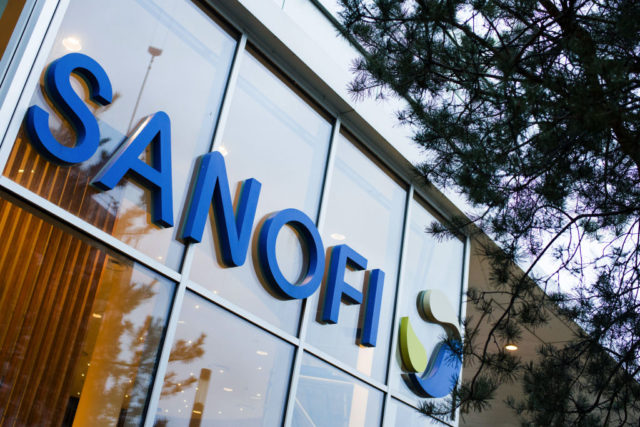
Sanofi’s work with engineered cytokines has stumbled in the clinic, but the company isn’t throwing in the towel yet on such therapies, which hold potential for treating autoimmune diseases and cancer. The French pharmaceutical giant is now partnering with a clinical-stage startup whose technologies for engineering these protein therapies could avoid limitations that have stymied some research efforts.
Per deal terms announced Monday, Sanofi is paying Synthekine $40 million up front. Depending on the progress of the research, Menlo Park, California-based Synthekine will be eligible for an unspecified sum in milestone payments.
Cytokines are signaling proteins that modulate immune responses. While these proteins are already in our bodies, leveraging them for therapeutic effect presents challenges. A cytokine’s effects can vary on different types of cells or even on the same cell types. Cytokine therapies can also spark broad responses that have toxic effects.
The Sanofi partnership is focused on one particular cytokine called interleukin-10, or IL-10. While this cytokine has drawn research interest for potential immunosuppressive applications, dose-limiting toxicity has been a problem. Synthekine’s version of IL-10 is engineered to dial out the protein’s immunostimulatory effects, which the company says separates the drug’s therapeutic efficacy from potential toxic effects.
The inflammatory disease targets for the partnered research were not disclosed. But the deal calls for Synthekine and Sanofi to work together up to a defined but undisclosed point of preclinical development. After that, Sanofi will take responsibility for developing the IL-10 therapeutic candidates. The companies said the collaboration will focus on using Synthekine’s technologies to optimize IL-10 with the goal of developing drugs that are more selective to their targets while offering a wider therapeutic index, the dose range that balances safety and efficacy.
“We look forward to working with Synthekine, a leader in targeted cytokine engineering with outstanding technologies and scientific team,” John Bertin, global head of inflammation and immunology research at Sanofi, said in a prepared statement. “IL-10 plays a key role in immune regulation, and this collaboration aimed at developing precisely tailored IL-10 therapies reaffirms our commitment to deliver the next wave of novel therapies to treat inflammatory diseases.”
Sanofi previously placed a big bet on cytokines when it acquired engineered cytokines developer Synthorx for $2.5 billion in 2019. Synthorx’s lead program was an IL-2 therapy in development for cancers and autoimmune diseases. In 2022, Sanofi disclosed Phase 2 results showing this cytokine therapy did not achieve the desired efficacy. No safety issues were reported for the therapy, which now bears the name pegenzileukin. But the disappointing results led the company to return the therapy to early-stage testing to sort out what it described as dosing issues. Sanofi aims to develop this therapy for treating solid tumors.
Lack of efficacy was also cited in the disappointing clinical trial outcomes for bempegaldesleukin, an IL-2 therapy that Nektar Therapeutics was developing in partnership with Bristol Myers Squibb. In 2022, this therapy ran into successive failures, first in a Phase 3 test in melanoma and then two Phase 2 trials in kidney and bladder cancers. The mid-stage failures led to the end of the alliance, which began in 2018 with a $1.8 billion financial commitment from BMS.
Synthekine has another big pharma research partner. In 2021, Merck and Synthekine struck up an alliance on the development of cytokine drugs for two autoimmune and inflammation targets that remain undisclosed. The sum of the upfront payment was also not disclosed, but Merck is providing Synthekine with research funding and the startup could earn up to $525 million in milestone payments.
Synthekine’s internal pipeline is led by an IL-12 therapy currently in Phase 1 testing for cancer. The startup last raised money in 2023, a $100 million Series C round of financing.
Photo: Nathan Laine/Bloomberg, via Getty Images








